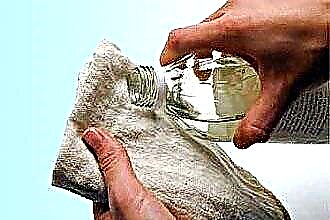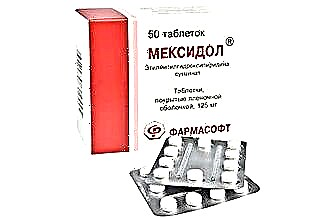Instructions for use of the drug Kardiket
 The active ingredient of the drug is isosorbide dinitrate. A sufficient number of drugs have been developed on the domestic market based on nitrates. In the international arena, isosorbide dinitrate is known as Cardiket Vidal.
The active ingredient of the drug is isosorbide dinitrate. A sufficient number of drugs have been developed on the domestic market based on nitrates. In the international arena, isosorbide dinitrate is known as Cardiket Vidal.
Regardless of the manufacturer, the recommendations in the instructions for the drug are the same. The advantage of a big name is, perhaps, a more advanced manufacturing technology, and the active substance remains the same.
Indications for use: what does it help from?
This drug is prescribed in such cases:
- to prevent the occurrence of angina attacks (as a basic therapy for ischemic heart disease);
- with chronic insufficiency of the pumping function of the heart (as one of the additional elements in complex therapy);
- after myocardial infarction (to prevent recurrent necrosis of the heart muscle, this is called secondary prevention).
In general, indications for the use of Kardiket are limited to conditions in which it is necessary to reduce the risk of narrowing of the coronary vessels to prevent myocardial hypoxia.
Methods of use and dosage of the medicine
The manufacturer produces a medication in the form of tablets for internal administration. They differ in different concentrations of the active substance. The use of a tablet Kardiket should obey the following scheme:
| Tablet dose (mg) | Reception scheme | Reapplication | Maximum daily dose (mg) |
|---|---|---|---|
| 20 | 2 tablets per day (for two doses) | After 6-8 hours | 60 (3 tablets, minimum interval 6 hours) |
| 40 | 1 tablet a day | 80 (2 tablets per day, in two doses) | |
| ½ tablet twice a day | |||
| 60 | 1 tablet per day | 180 (two tablets per day) |
There are extended-release capsules, each containing 120 mg of isosorbide dinitrate. They are prescribed once a day.
Prescribing the drug begins with minimal doses. This is due to the development of the body's habituation to the action of nitrates, when the previously helped amount of the active substance ceases to have the desired effect. To overcome this phenomenon, it is necessary to increase the dose taken by the patient, which leads to an increase in the likelihood of adverse reactions.
The individual sensitivity of the patient's body also plays a role (it all depends on the degree of activity of enzyme systems and the rate of biochemical reactions).
 Since this drug is prescribed starting from the minimum doses (and then an increase may be required immediately), the manufacturer has made it possible to easily separate the tablet into two equal parts.
Since this drug is prescribed starting from the minimum doses (and then an increase may be required immediately), the manufacturer has made it possible to easily separate the tablet into two equal parts.
This requires:
- find a transverse strip on one side of the tablet;
- put the dosage form on a flat and hard surface, with the dividing line up;
- press down on the strip from above with the pad of your thumb.
It is recommended to swallow the cardiket without chewing, drinking clean water at a comfortable temperature. Can be used with or without food.
Possible side effects and symptoms of overdose
If you use the medicine more often than the instructions for using Kardiket recommend, you can provoke the appearance of certain symptoms:
- arterial hypotension (due to the prolonged vasodilating effect of isosorbide dinitrate, systolic pressure may drop below 90 mm Hg);
- tachycardia (as an attempt by the body to compensate for a decrease in blood pressure);
 asthenia (includes weakness, pallor of the skin and mucous membranes, dizziness);
asthenia (includes weakness, pallor of the skin and mucous membranes, dizziness);- nausea;
- diarrhea;
- shortness of breath;
- redness of the skin;
- visual impairment;
- headache (due to vasodilation, intracranial pressure rises, which leads to unpleasant sensations).
When taking huge doses of the drug, the pressure inside the skull increases so much that symptoms of irritation of the meninges and damage to the gray matter become possible.
Cardiket can slow down a person's reaction, which can negatively affect driving skills and lead to a traffic accident. This feature of this medication is especially pronounced in the case of the presence of alcohol in the blood.
Side effects are similar to symptoms of an overdose. However, the unpleasant manifestations described above occur only when the dose specified in the instructions is exceeded. But the side effect manifests even if all norms are observed, depending on the characteristics of the organism of each individual patient.
| Organ system | Frequency of side effects | |||
|---|---|---|---|---|
| In most cases | Often | Sometimes | Rarely | |
| Cardiovascular | Reflex tachycardia, hypotension when standing (especially after getting up suddenly) | Increased symptoms of angina pectoris, hypotension, collapse, bradycardia, syncope | ||
| Digestive | Nausea, vomiting | Heartburn | ||
| General state | Feeling weak | |||
| Nervous | "Nitrate" headache | Dizziness, drowsiness | ||
| Leather | Allergic reaction (in the form of a rash), redness | Vascular edema, exfoliative dermatitis (blistering, and in their place - erosion) | ||
The intensity of the headache, which has arisen as a side effect of nitrates, gradually decreases with prolonged use of Kardiket.
Contraindications to the appointment
This medication cannot be prescribed if the patient has absolute contraindications:
- increased individual sensitivity to isosorbide dinitrate, other nitrate compounds, any of the excipients used for the production of the drug;
- acute myocardial necrosis (infarction), which is accompanied by low blood pressure;
- obstructive hypertrophic cardiomyopathy;
- an acute increase in the volume of the vascular bed (collaptoid, shock conditions);
- dry cardiac tamponade or hemopericardium;
- constrictive pericarditis.
 It is permissible to use Cardiket under close supervision by a physician under the following conditions (relative contraindications):
It is permissible to use Cardiket under close supervision by a physician under the following conditions (relative contraindications):
- impaired left ventricular function;
- hemodynamically significant stenosis of the heart valves;
- orthostatic disorders (jumps in blood pressure when moving from horizontal to vertical position and vice versa);
- anemias;
- insufficiency of the liver enzyme systems;
- impaired excretory renal function;
- elderly patients;
- glaucoma (closed-angle type);
- fresh traumatic brain injury;
- hemorrhagic stroke.
Clinical studies on the use of Cardiket during pregnancy and lactation have not been carried out, and therefore, in these conditions, taking this medication is allowed only if there is an urgent need, under the supervision of the attending physician.
Kardiket's analogs that are available on the Russian market
Sustained-release nitrates are a fairly popular group of drugs, so finding analogues and cheaper substitutes for Kardiket will not be a problem.
On the Russian pharmaceutical market, you can find the following analogs (medicines in which the active ingredient is also isosorbide dinitrate):
 Dinisorb;
Dinisorb;- Nitrosorbide;
- Isacardine;
- Iso Mac Retard;
- Iso Mac spray;
- Nitrosorbide-Rusfar;
- Cardix;
- Aerosonite;
- Nisopercuten;
- Isoket;
- Izolong;
- Monosan (Czech production).
Conclusions
Cardiket belongs to the long-acting nitrate group.It is prescribed to improve the blood supply to the myocardium in angina pectoris, after a heart attack and in some other conditions.
The main side effect is headache. In routine use, drug-induced hypotension is dangerous, especially in the elderly. The medication can only be taken if it is prescribed by a cardiologist.
There are many domestic names and imported analogues of Kardiket. The abundance of nitrate-based products indicates their effectiveness and relevance.

 asthenia (includes weakness, pallor of the skin and mucous membranes, dizziness);
asthenia (includes weakness, pallor of the skin and mucous membranes, dizziness); Dinisorb;
Dinisorb;

